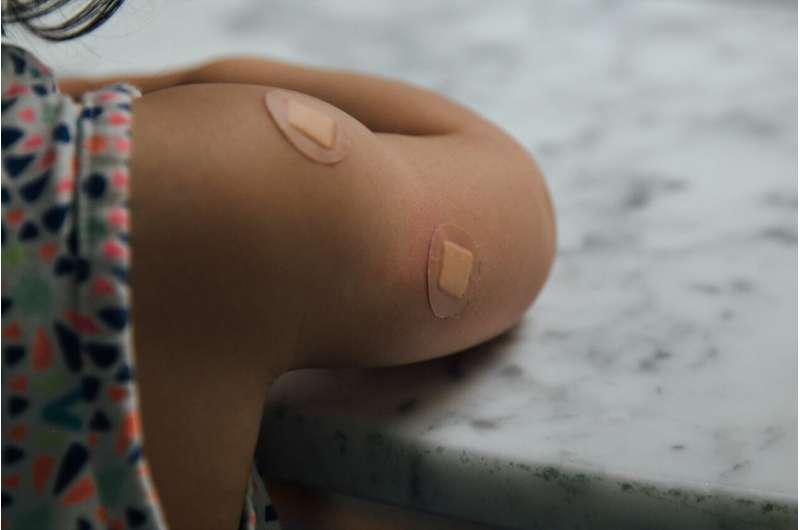Credit: Unsplash/CC0 Public Domain
More than 90 percent of human papillomavirus (HPV)-related cancers could be prevented by widespread uptake of the HPV vaccine. Yet, vaccine use in the United States falls short of public health goals.
In an article in JMIR Nursing, researchers explain how they applied user-centered design principles to develop a mobile health (mhealth) app to improve HPV vaccine uptake and how its use was evaluated with parents and parent-adolescent dyads. The app—Vaccipack—is exclusively focused on adolescent vaccines and targets key parental beliefs related to HPV vaccines. The mhealth app is designed for parents (to use and share with their adolescents) to promote the initiation and completion of the HPV vaccine series in their adolescent children.
The study from the University of Pennsylvania School of Nursing (Penn Nursing) evaluated the acceptability of and intention to use the app. It found that intention to use the app was high among both parents and adolescents after being introduced to the app and given time explore it.
"Theory-based content design, although standard practice in behavioral intervention research, has not been a typical approach adopted by app developers," says Anne M. Teitelman, Ph.D., FNP-BC, FAANP, FAAN, Associate Professor Emerita of Nursing at Penn Nursing. "Evaluation of acceptability and likely use, as we present here, is an important preliminary step for developing apps and in designing behavioral interventions that are most likely to achieve the desired health outcome." Teitelman is the lead investigator of the study and among the developers of the app.
The article, "Vaccipack, A Mobile App to Promote Human Papillomavirus Vaccine Uptake Among Adolescents Aged 11 to 14 Years: Development and Usability Study" is available online.
More information: Anne M Teitelman et al. Vaccipack, A Mobile App to Promote Human Papillomavirus Vaccine Uptake Among Adolescents Aged 11 to 14 Years: Development and Usability Study, JMIR Nursing (2020). DOI: 10.2196/19503
Provided by University of Pennsylvania School of Nursing























